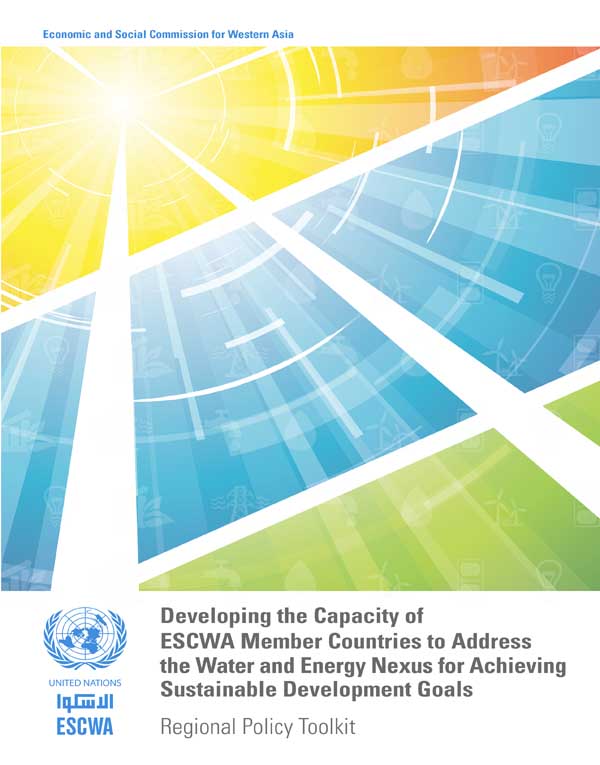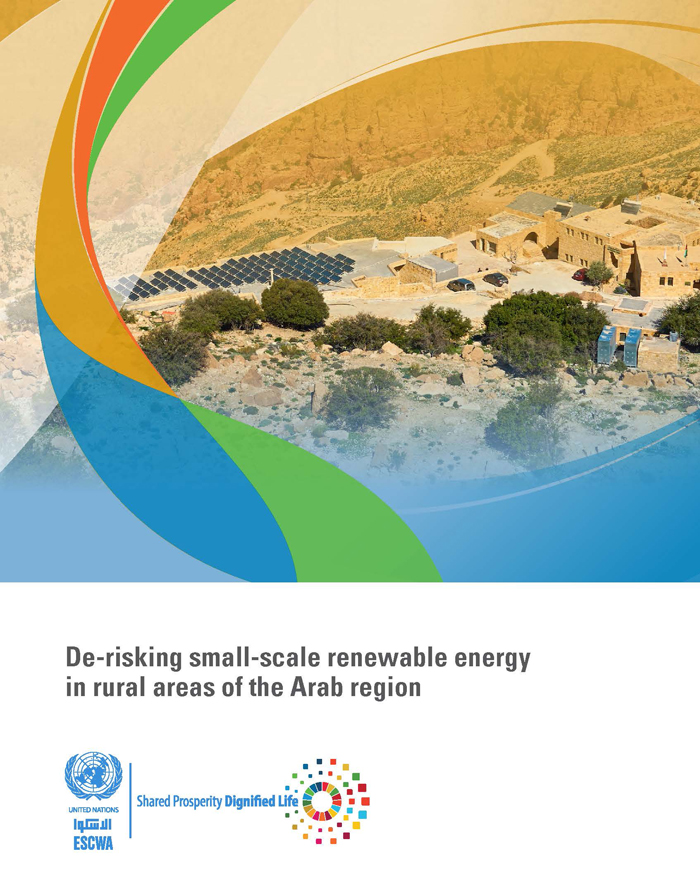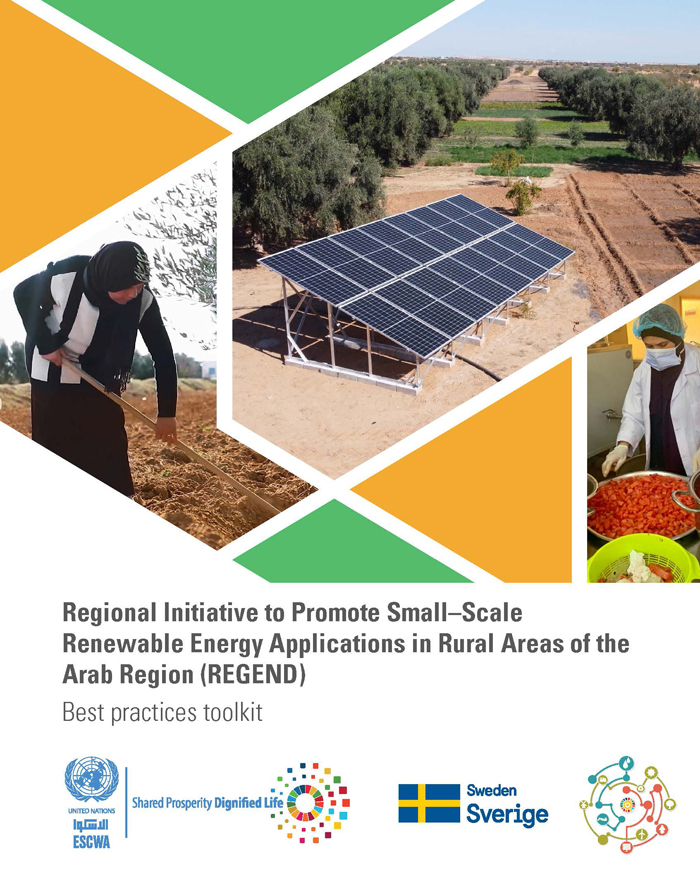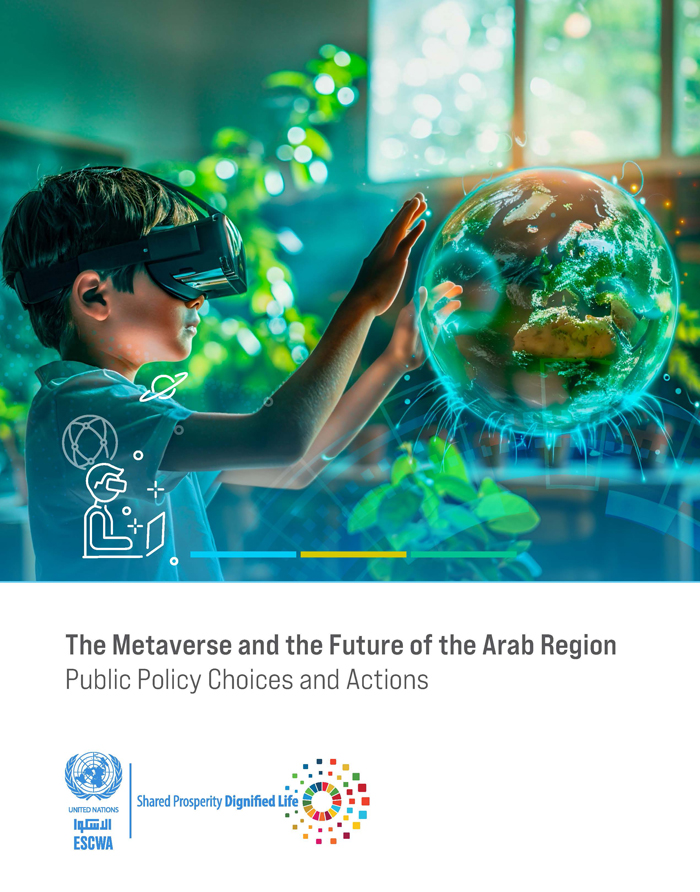
ESCWA Publication: E/ESCWA/SDPD/2016/MANUAL
Country: Arab region, ESCWA Member States
Publication Type: Training material
Cluster: 2030 Agenda and SDG Coordination
Focus Area: Natural resource sustainability
Initiatives: Water & energy nexus
SDGs: Goal 6: Clean Water and Sanitation, Goal 7: Affordable and Clean Energy
Keywords: Energy planning, Energy resources, Energy security, Sustainable development, Sustainable energy, Water, Water management, Water resources, Water rights, Waste management, Statistical data, Renewable energy sources, Information technology, Capacity building, Financial aspects, Energy resources, Energy efficiency, Water rights, Climate change
Developing the Capacity of ESCWA Member Countries to Address the Water and Energy Nexus for Achieving Sustainable Development Goals
January 2016
Developing the Capacity of ESCWA Member Countries to Address the Water and Energy Nexus for Achieving Sustainable Development Goals: Regional Policy Toolkit
The water and energy nexus regional policy toolkit was prepared as part of the United Nations Development Account (UNDA) project on developing the capacity of ESCWA Member Countries to address the water and energy nexus for achieving Sustainable Development Goals. This project aims to build the capacity of ministries and public service providers in the Arab region to examine and address the water and energy nexus in an integrated manner.
ESCWA Member States recognize the importance of integrating water and energy resources management. Endorsed by the 27th ESCWA Ministerial Session in May 2012, a recommendation was issued by the ESCWA Committee on Water Resources to examine the water-energy nexus and was welcomed by the ESCWA Energy Committee. In response, ESCWA organized an “Intergovernmental Consultative Meeting on the Water and Energy Nexus in the Arab Region” (Beirut, June 2012) for members of both ESCWA intergovernmental committees to exchange views on the water and energy nexus within the regional context. The meeting resulted in the identification of seven priority areas, namely: (a) Raising awareness and disseminating knowledge; (b) Increasing policy coherence; (c) Examining the water-energy security nexus; (d) increasing efficiency; (e) Informing technology choices; (f) Promoting renewable energy; (g) Addressing climate change and natural disasters. The water and energy nexus regional policy toolkit contains seven modules, each addressing one of the identified priority areas.
Related content
Natural resource sustainability
,
Developing the Capacity of ESCWA Member Countries to Address the Water and Energy Nexus for Achieving Sustainable Development Goals: Regional Policy Toolkit
The water and energy nexus regional policy toolkit was prepared as part of the United Nations Development Account (UNDA) project on developing the capacity of ESCWA Member Countries to address the water and energy nexus for achieving Sustainable Development Goals. This project aims to build the capacity of ministries and public service providers in the Arab region to examine and address the water and energy nexus in an integrated manner.
ESCWA Member States recognize the importance of integrating water and energy resources management. Endorsed by the 27th ESCWA Ministerial Session in May 2012, a recommendation was issued by the ESCWA Committee on Water Resources to examine the water-energy nexus and was welcomed by the ESCWA Energy Committee. In response, ESCWA organized an “Intergovernmental Consultative Meeting on the Water and Energy Nexus in the Arab Region” (Beirut, June 2012) for members of both ESCWA intergovernmental committees to exchange views on the water and energy nexus within the regional context. The meeting resulted in the identification of seven priority areas, namely: (a) Raising awareness and disseminating knowledge; (b) Increasing policy coherence; (c) Examining the water-energy security nexus; (d) increasing efficiency; (e) Informing technology choices; (f) Promoting renewable energy; (g) Addressing climate change and natural disasters. The water and energy nexus regional policy toolkit contains seven modules, each addressing one of the identified priority areas.



